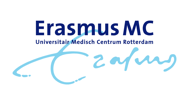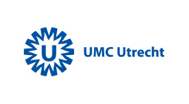Parliament and science
Providing members of the House of Representatives with scientific knowledge is the goal of the Parliament & Science partnership, which the NFU participates in.
In the Parliament & Science partnership, the House of Representatives is working with six national science organisations: the NFU, Association of Universities in the Netherlands (VSNU), the NWO (Dutch Organisation for Scientific Research), the KNAW, TNO and the Young Academy. As a result, members of Parliament can count on and utilise the most recent scientific insights.
Parliament & Science works with six instruments that assist members of the House of Representatives to gather enough knowledge about a topic to take sound decisions and formulate policy:
1. Network exploration
Members of Parliament can always count on a current overview from scientists specialised in a particular topic. They can approach these scientists for a factsheet (see below) or a refresher session, for example, to prepare for a hearing or a debate.
2. Factsheet and position paper
House of Representatives committees can request a factsheet on a particular topic, to catch up quickly with the details. Or scientists in the Parliament & Science group can take the initiative to prepare a factsheet to draw the attention of MPs to a certain development.
3. Scientific testing
The Cabinet is obliged to substantiate policy and law proposals clearly. But is the substantiation correct? Are there, for example, no better policy alternatives to be found in other countries? The House of Representatives has the substantiation checked by two scientists from different universities and research disciplines, who were not involved with the preparation of the policy proposal to be evaluated. Parliament & Science has developed a special form for use in the scientific testing of policy and laws.
4. Breakfast meeting
Informal breakfast meetings are regularly organised. During them, members of the House of Representatives and scientists can talk about a current topic of interest. The MPs can use the knowledge gained for a parliamentary debate, for example.
5. Mini-symposium
Every year the Parliament & Science mini-symposium is organised. Its aim: inform members of the House of Representatives and staff (of political groups and committees) about a current scientific topic that could have large societal effects.
6. Monitoring research news
Each day, Parliament & Science selects items from the scientific news that could be important for House of Representatives committees. This information is sent to the Analysis and Research Service of the House of Representatives. It is responsible for the knowledge provision to the House of Representatives committees.








